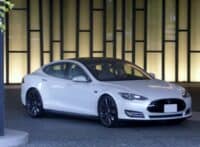
In addition to car payments, maintenance, and gas, drivers must set aside funds to insure their vehicles. Insurance costs vary from state to state, but most drivers are required to have insurance to cover damage to their vehicle, other vehicles, property, as well as bodily injury and medical payments.
For the model years 2017 to 2019, it cost insurance companies an average of $963 to insure a vehicle for one year. These costs directly affect how much drivers have to pay to keep their vehicles insured. There are 25 different cars and SUVs for which coverage costs $1,250 or more per year.
To determine the 25 cars with the highest insurance costs for insurance companies, 24/7 Wall St. reviewed data on insurance claim payments insurers made by make and model from the Insurance Institute for Highway Safety, a nonprofit research organization funded by auto insurers.
One of the main factors driving up car insurance prices is the price of the car itself — more expensive cars tend to have more expensive parts and higher costs of repair. Faster and sportier cars also tend to have higher insurance costs because drivers of these vehicles tend to drive at higher speeds, which increases the chance of accidents.
However, insurance costs do not depend only on the car itself. States require different levels of coverage for drivers, not to mention the fact that drivers in urban areas have higher rates because car theft is more likely there than in the suburbs or rural areas. Young drivers also cost more to insure because of potentially reckless behavior and a lack of experience behind the wheel. These are the best and worst states for teen drivers.
Click here to see the most expensive cars to insure.
To determine the 25 cars with the highest insurance costs, 24/7 Wall St. reviewed data on insurance claim payments insurers made by insurers by make and model from the Insurance Institute for Highway Safety, a nonprofit research organization funded by auto insurers. The costs include six types of insurance: collision, property damage, comprehensive, personal injury, medical payment, and bodily injury. The model that is most expensive to insure has the highest overall average cost to the insurer per year. These data are for 308 vehicles of 2017-2019 model years sold in the United States. Average annual insurance payments account for both the frequency of accidents as well as the average payment made by model. The IIHS breaks down the data for models to sometimes include certain safety-relevant features, such as all-wheel drive and driver assistance technology. To avoid repetition, each model nameplate is listed only once, and the more expensive version to insure is always listed. We also excluded those vehicles where a relative cost figure was not included by the IIHS for all six payout categories.
The current retail model price came from auto industry data resource Kelley Blue Book and represents the manufacturer’s suggested retail price for the most recent model year. Some of the models on this list have been discontinued, and in those cases, the most recently available resale value of a previous model year is listed.
25. Chevrolet Sonic
> Annual average cost to insurer: $1,250
> Annual average collision cost to insurer: $484
> Type: Small 4-door
> Current model retail price: $16,720
[in-text-ad]
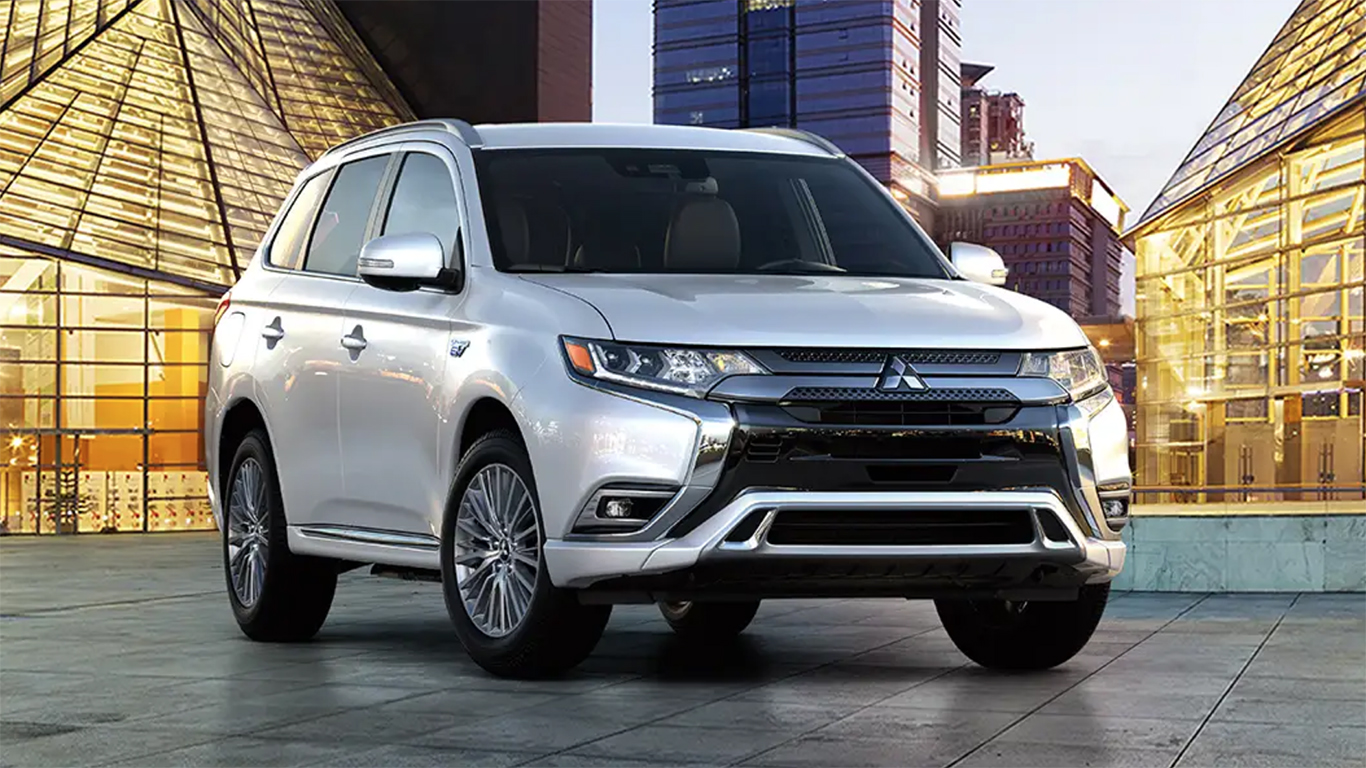
24. Mitsubishi Outlander Sport 4dr
> Annual average cost to insurer: $1,256
> Annual average collision cost to insurer: $526
> Type: Small SUV
> Current model retail price: $27,595
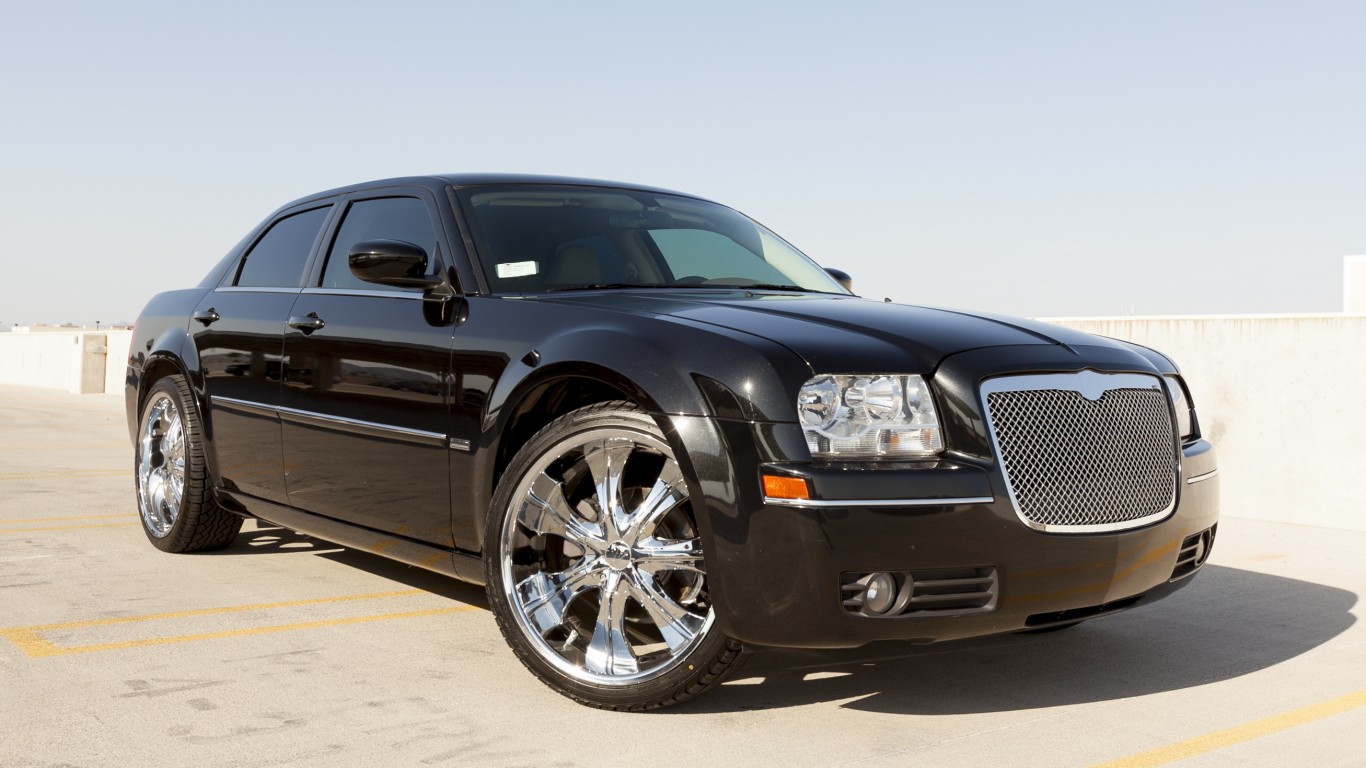
23. Chrysler 300
> Annual average cost to insurer: $1,260
> Annual average collision cost to insurer: $562
> Type: Large 4-door
> Current model retail price: $30,445

22. Mercedes-Benz CLA class 4dr
> Annual average cost to insurer: $1,263
> Annual average collision cost to insurer: $681
> Type: Midsize luxury car
> Current model retail price: $37,850
[in-text-ad-2]

21. Nissan Sentra
> Annual average cost to insurer: $1,277
> Annual average collision cost to insurer: $567
> Type: Small 4-door
> Current model retail price: $19,410

20. Hyundai Elantra
> Annual average cost to insurer: $1,280
> Annual average collision cost to insurer: $580
> Type: Small 4-door
> Current model retail price: $19,850
[in-text-ad]

19. Nissan Versa
> Annual average cost to insurer: $1,291
> Annual average collision cost to insurer: $503
> Type: Small 4-door
> Current model retail price: $14,930
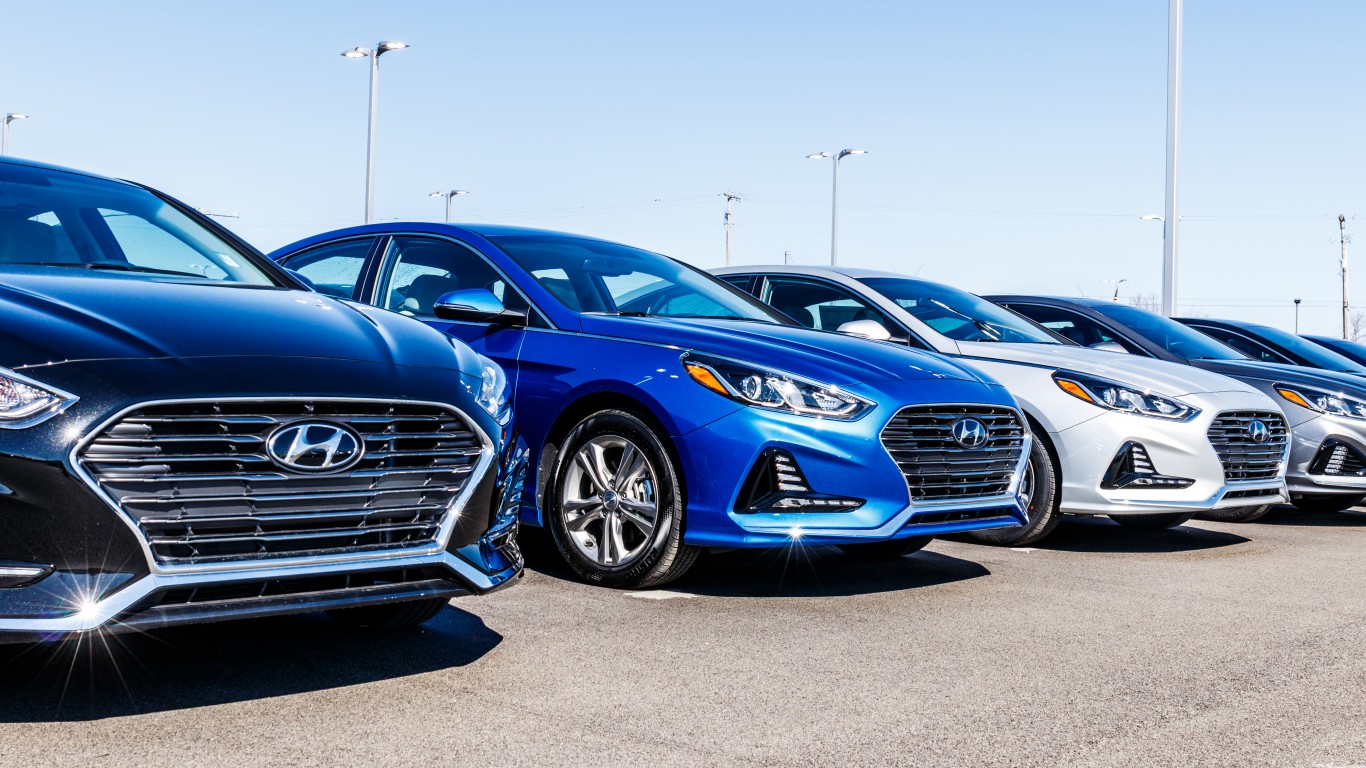
18. Hyundai Sonata hybrid
> Annual average cost to insurer: $1,292
> Annual average collision cost to insurer: $649
> Type: Midsize 4-door
> Current model retail price: $24,150

17. Nissan Maxima
> Annual average cost to insurer: $1,297
> Annual average collision cost to insurer: $640
> Type: Midsize 4-door
> Current model retail price: $36,990
[in-text-ad-2]

16. Kia Stinger 2WD/4WD
> Annual average cost to insurer: $1,317
> Annual average collision cost to insurer: $745
> Type: Large 4-door
> Current model retail price: $36,090

15. Kia Forte
> Annual average cost to insurer: $1,321
> Annual average collision cost to insurer: $539
> Type: Small 4-door
> Current model retail price: $17,890
[in-text-ad]
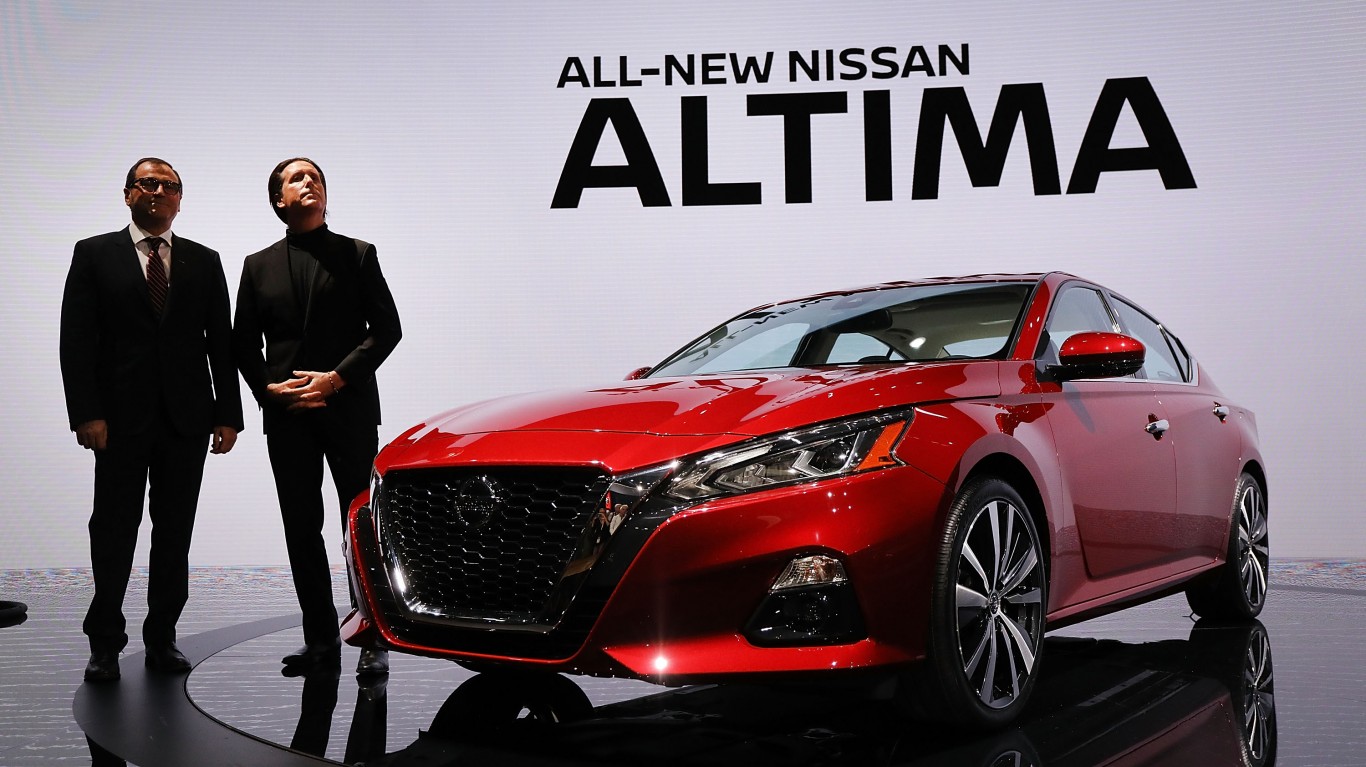
14. Nissan Altima
> Annual average cost to insurer: $1,342
> Annual average collision cost to insurer: $649
> Type: Midsize 4-door
> Current model retail price: $24,300

13. Mercedes-Benz E class 4dr
> Annual average cost to insurer: $1,361
> Annual average collision cost to insurer: $768
> Type: Large luxury car
> Current model retail price: $54,250
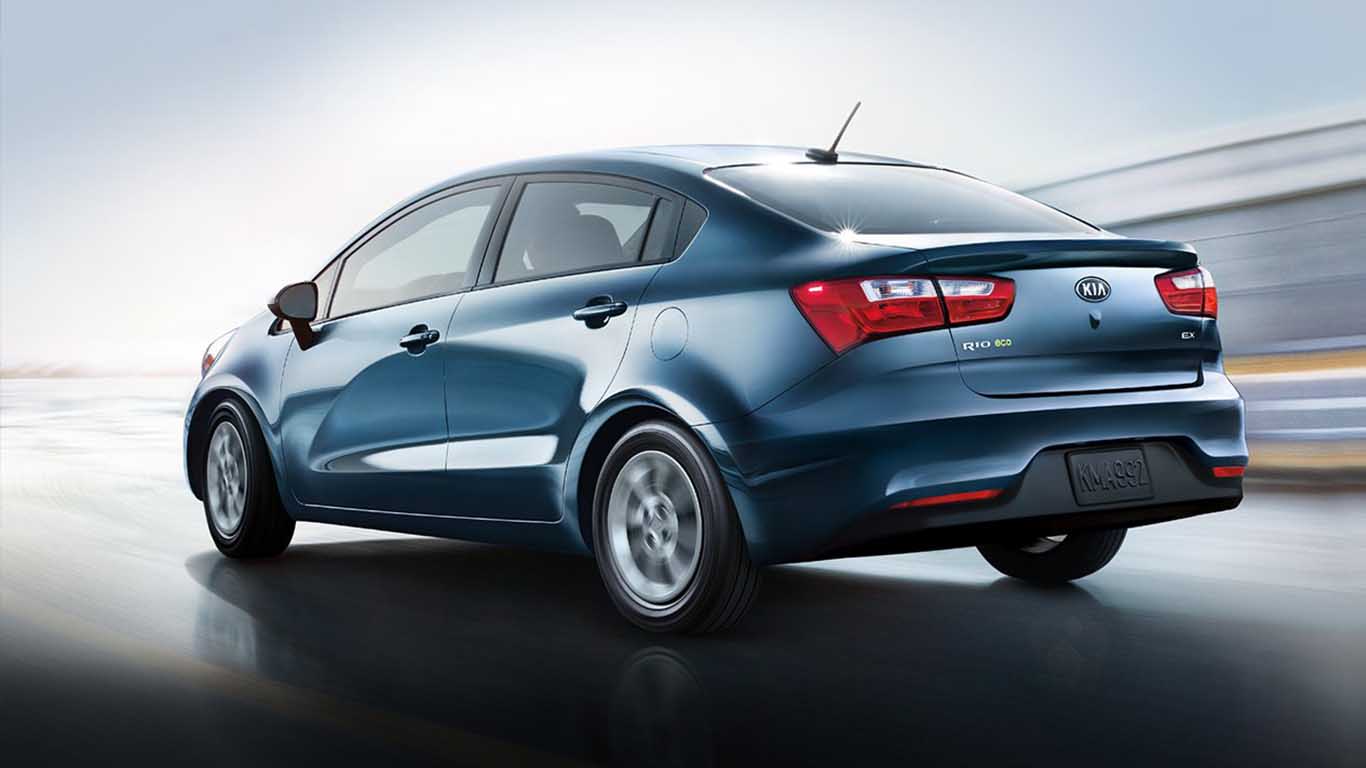
12. Kia Rio
> Annual average cost to insurer: $1,366
> Annual average collision cost to insurer: $553
> Type: Mini 4-door
> Current model retail price: $17,015
[in-text-ad-2]

11. Ford Mustang GT 2dr
> Annual average cost to insurer: $1,371
> Annual average collision cost to insurer: $836
> Type: Midsize sports car
> Current model retail price: $27,155
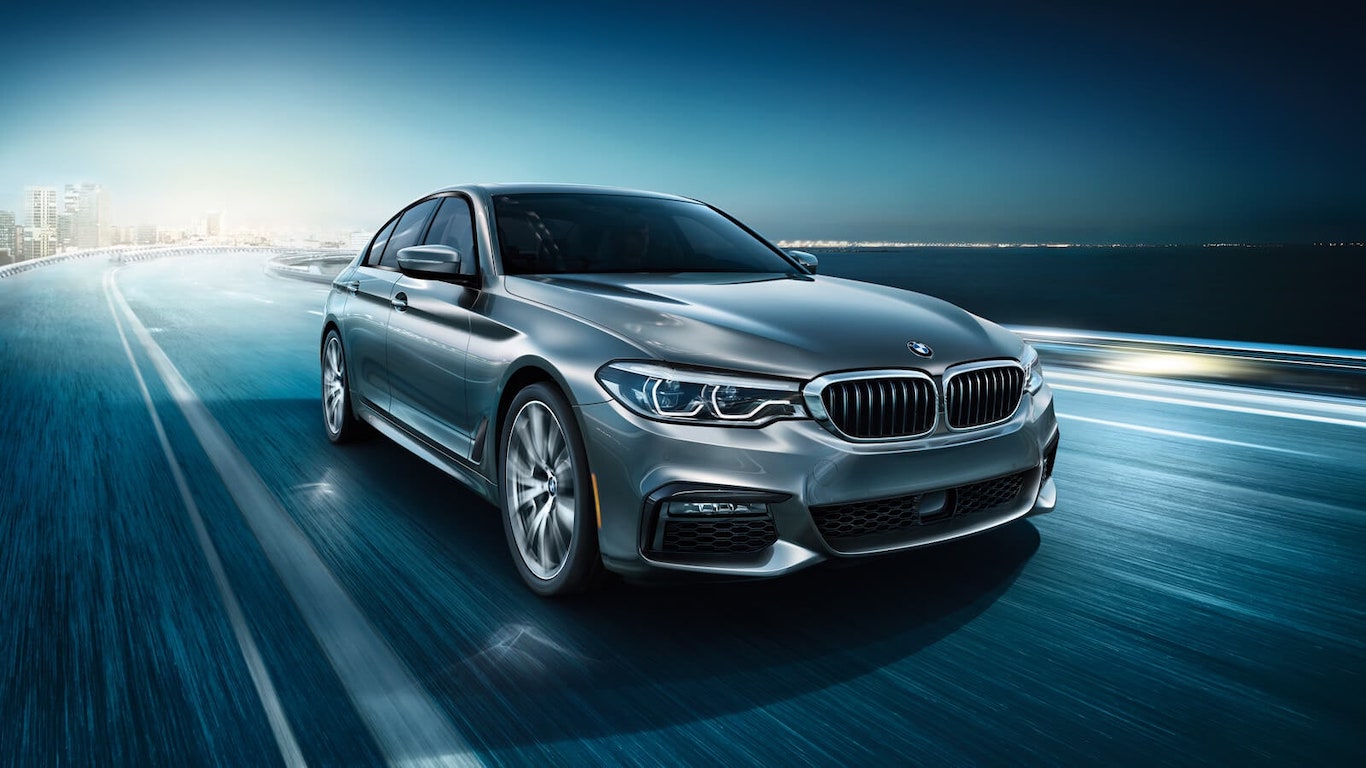
10. BMW 5 series 4dr 4WD
> Annual average cost to insurer: $1,384
> Annual average collision cost to insurer: $823
> Type: Large luxury car
> Current model retail price: $54,200
[in-text-ad]

9. Chevrolet Camaro 2dr
> Annual average cost to insurer: $1,397
> Annual average collision cost to insurer: $749
> Type: Large sports car
> Current model retail price: $25,000
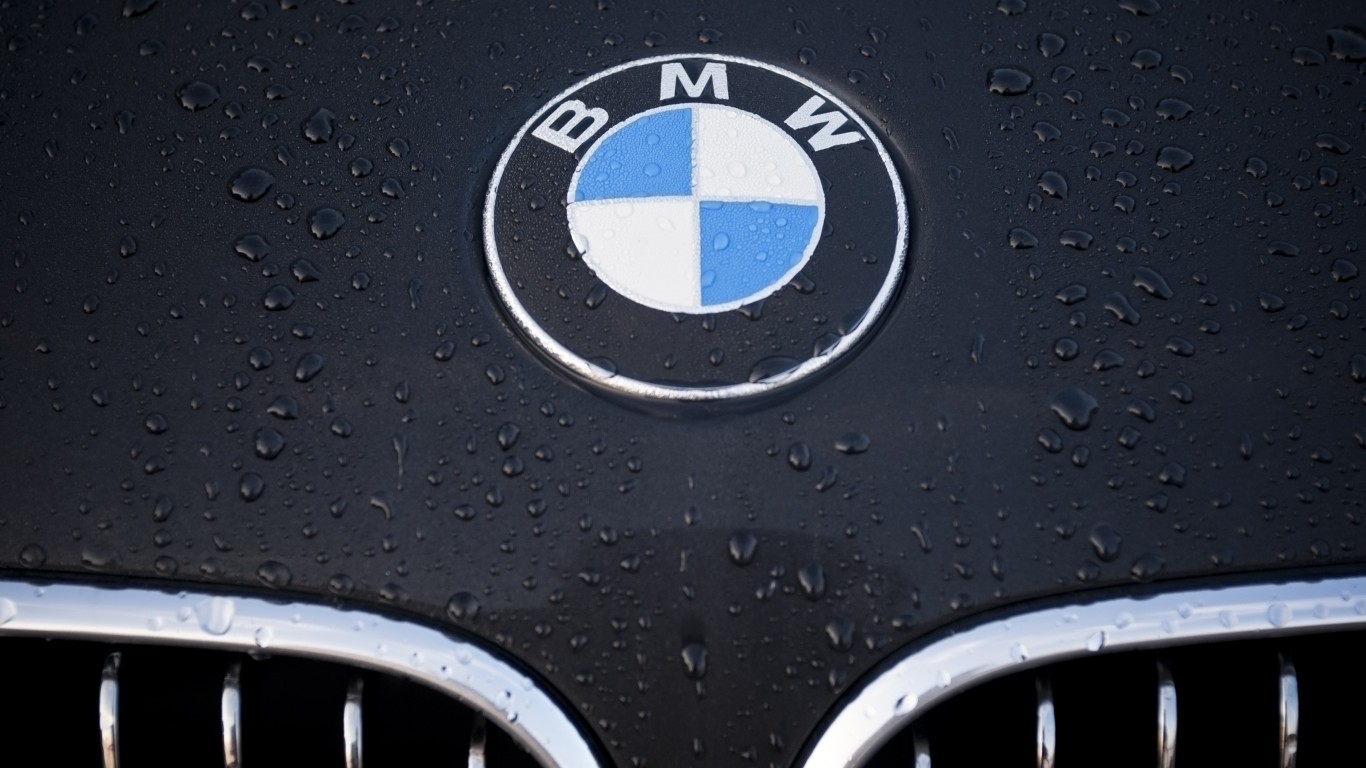
8. BMW 4 series 4dr
> Annual average cost to insurer: $1,429
> Annual average collision cost to insurer: $768
> Type: Midsize luxury car
> Current model retail price: $44,800
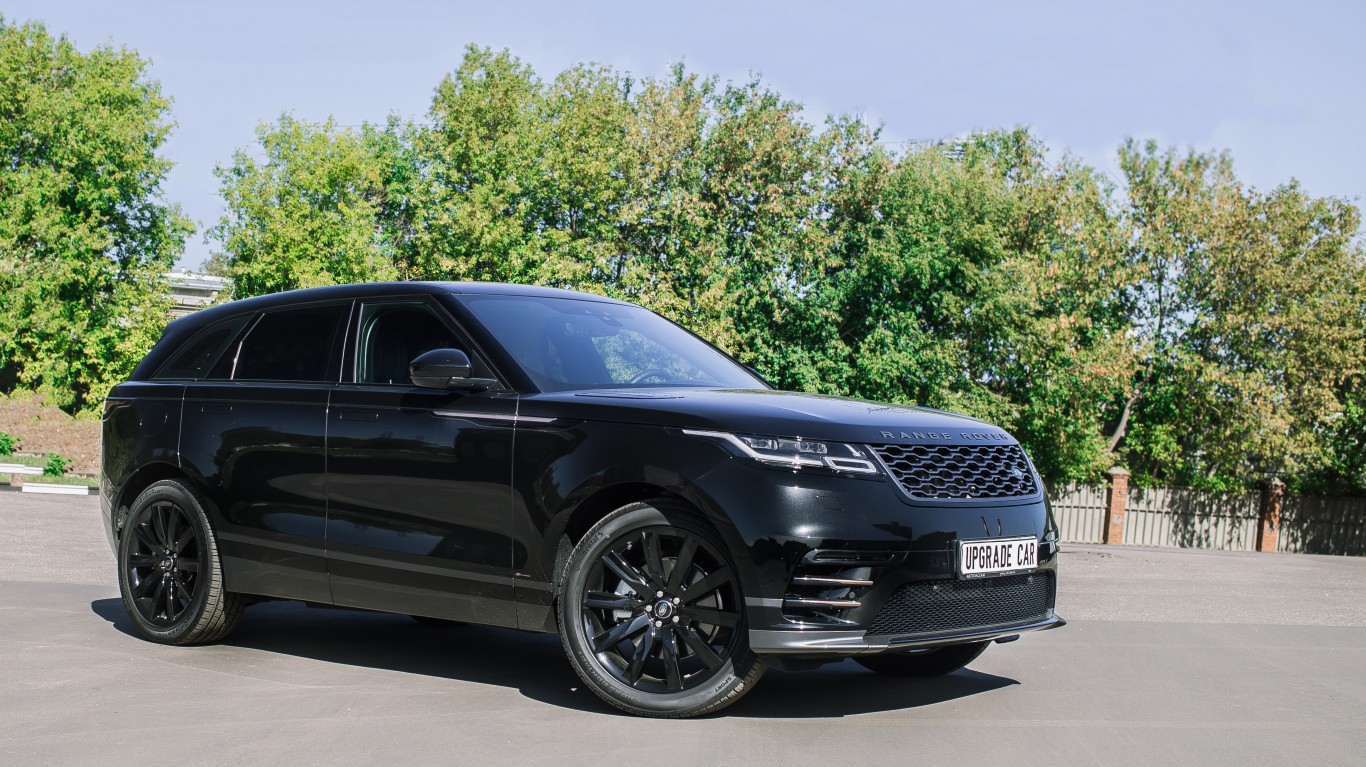
7. Land Rover Range Rover Velar 4dr 4WD
> Annual average cost to insurer: $1,437
> Annual average collision cost to insurer: $868
> Type: Midsize luxury SUV
> Current model retail price: $92,000
[in-text-ad-2]
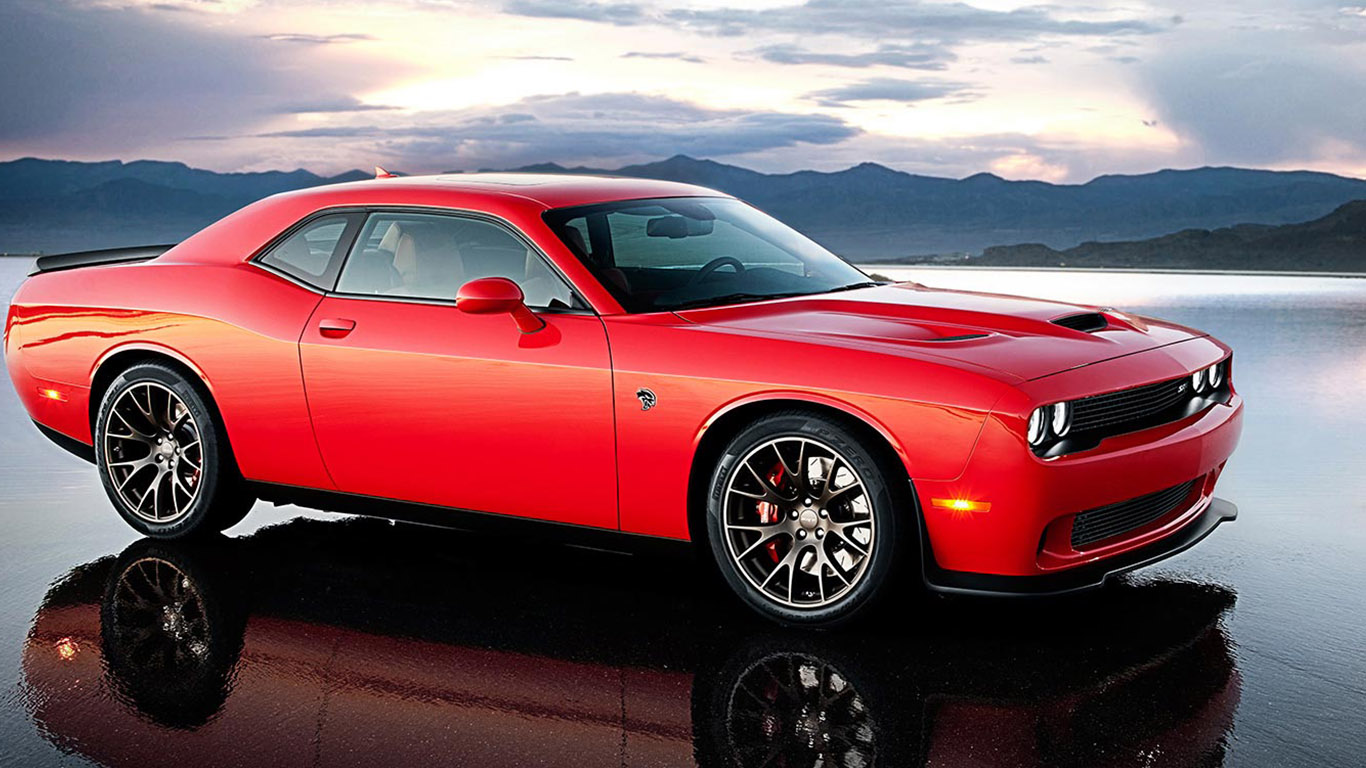
6. Dodge Challenger
> Annual average cost to insurer: $1,476
> Annual average collision cost to insurer: $749
> Type: Large 2-door
> Current model retail price: $28,095

5. Infiniti Q50 4dr
> Annual average cost to insurer: $1,521
> Annual average collision cost to insurer: $791
> Type: Midsize luxury
> Current model retail price: $36,600
[in-text-ad]
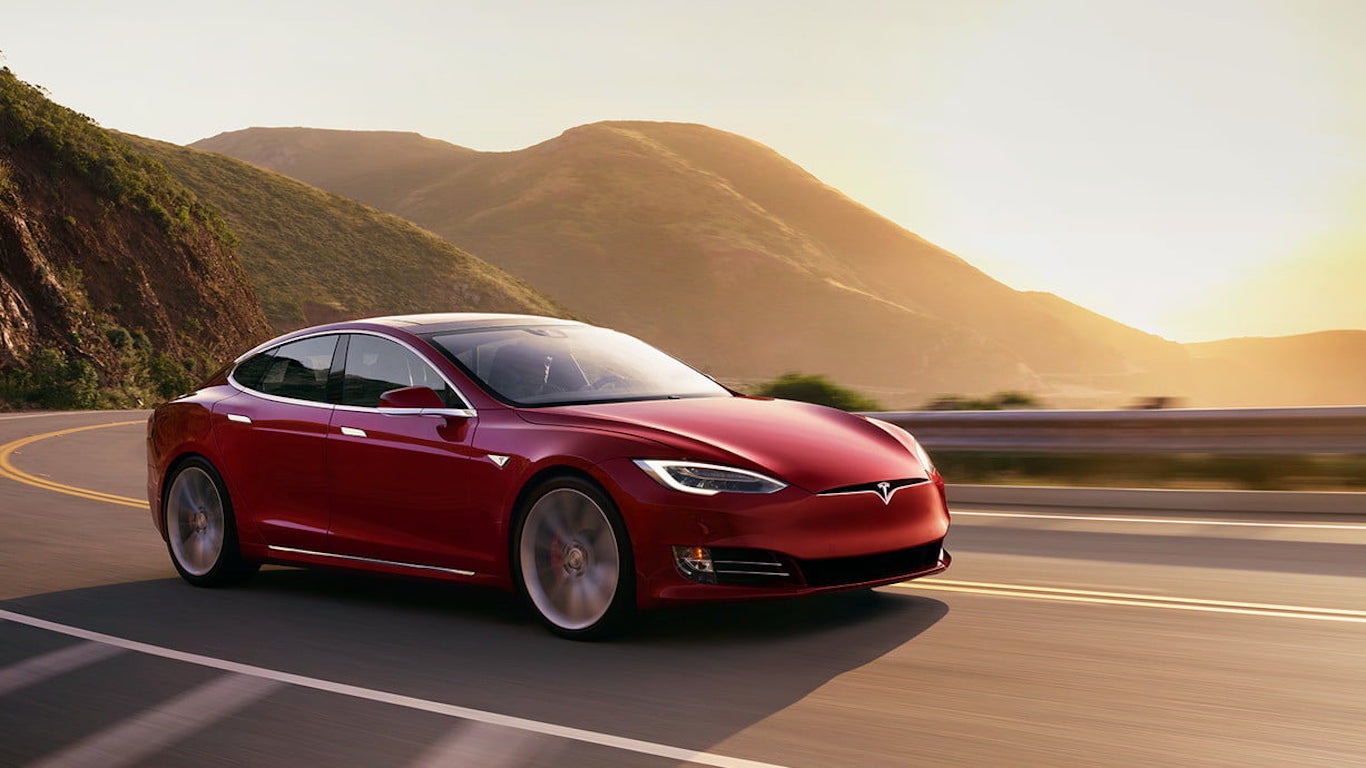
4. Tesla Model S 4dr electric 4WD
> Annual average cost to insurer: $1,654
> Annual average collision cost to insurer: $1,156
> Type: Large luxury
> Current model retail price: $79,990

3. Dodge Charger HEMI
> Annual average cost to insurer: $1,707
> Annual average collision cost to insurer: $914
> Type: Large 4-door
> Current model retail price: $29,995
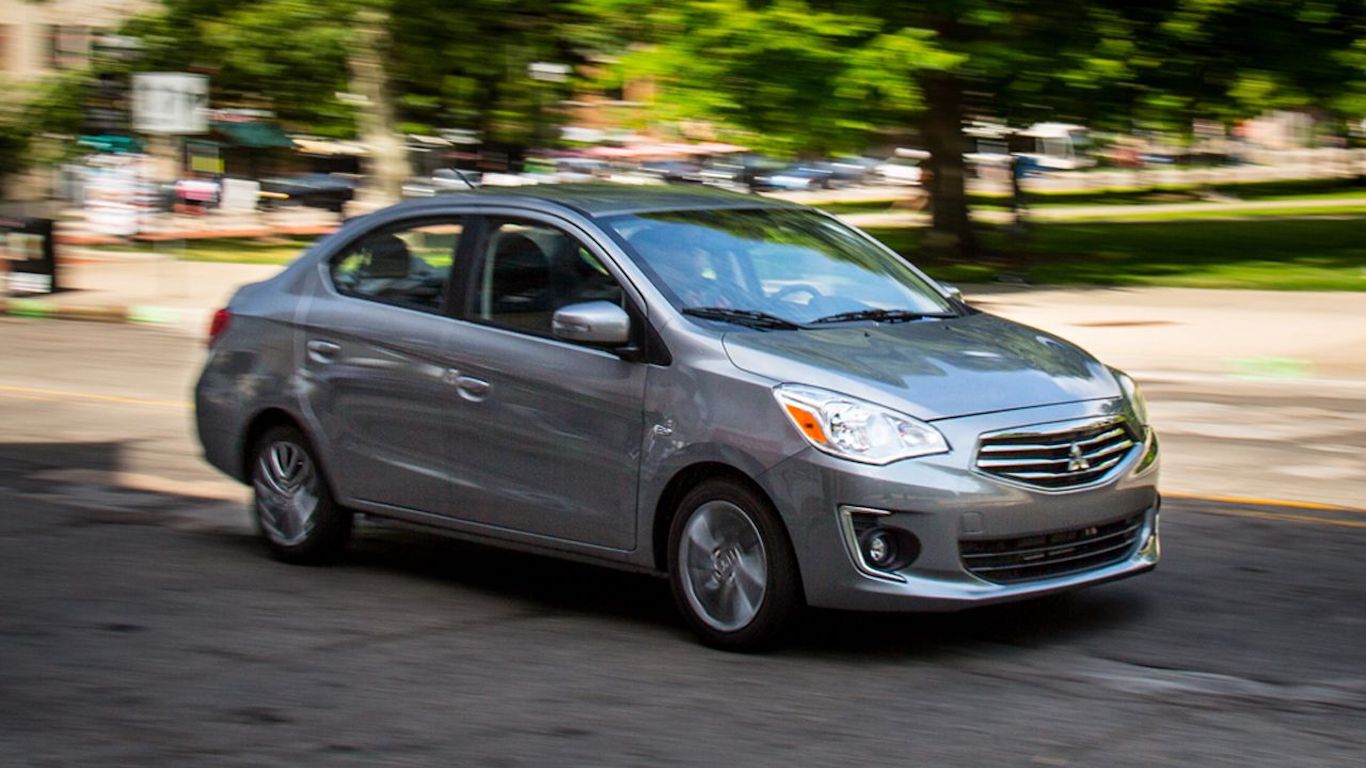
2. Mitsubishi Mirage G4
> Annual average cost to insurer: $1,730
> Annual average collision cost to insurer: $727
> Type: Mini 4-door
> Current model retail price: $14,295
[in-text-ad-2]
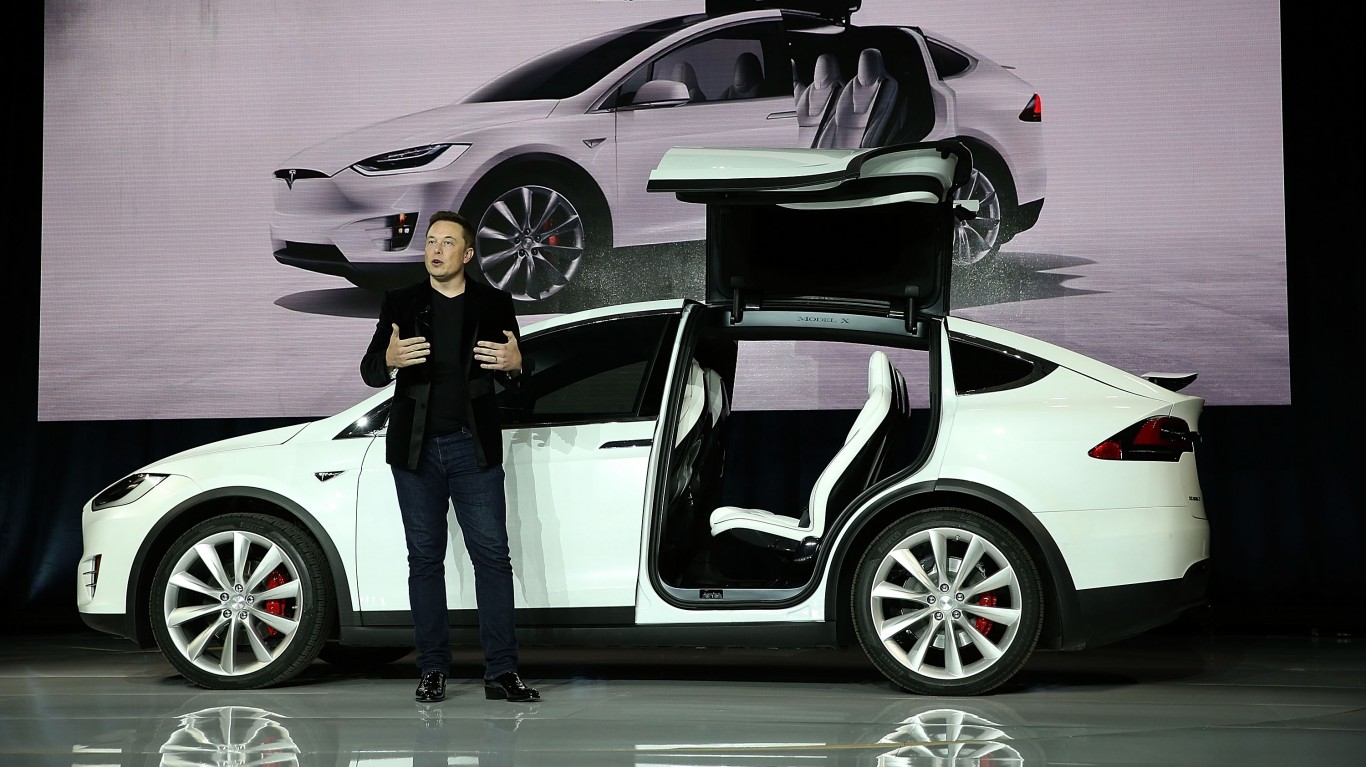
1. Tesla Model X 4dr electric 4WD
> Annual average cost to insurer: $1,974
> Annual average collision cost to insurer: $1,389
> Type: Large luxury SUV
> Current model retail price: $91,190
Credit card companies are handing out rewards and benefits to win the best customers. A good cash back card can be worth thousands of dollars a year in free money, not to mention other perks like travel, insurance, and access to fancy lounges. See our top picks for the best credit cards today. You won’t want to miss some of these offers.
Flywheel Publishing has partnered with CardRatings for our coverage of credit card products. Flywheel Publishing and CardRatings may receive a commission from card issuers.
Thank you for reading! Have some feedback for us?
Contact the 24/7 Wall St. editorial team.
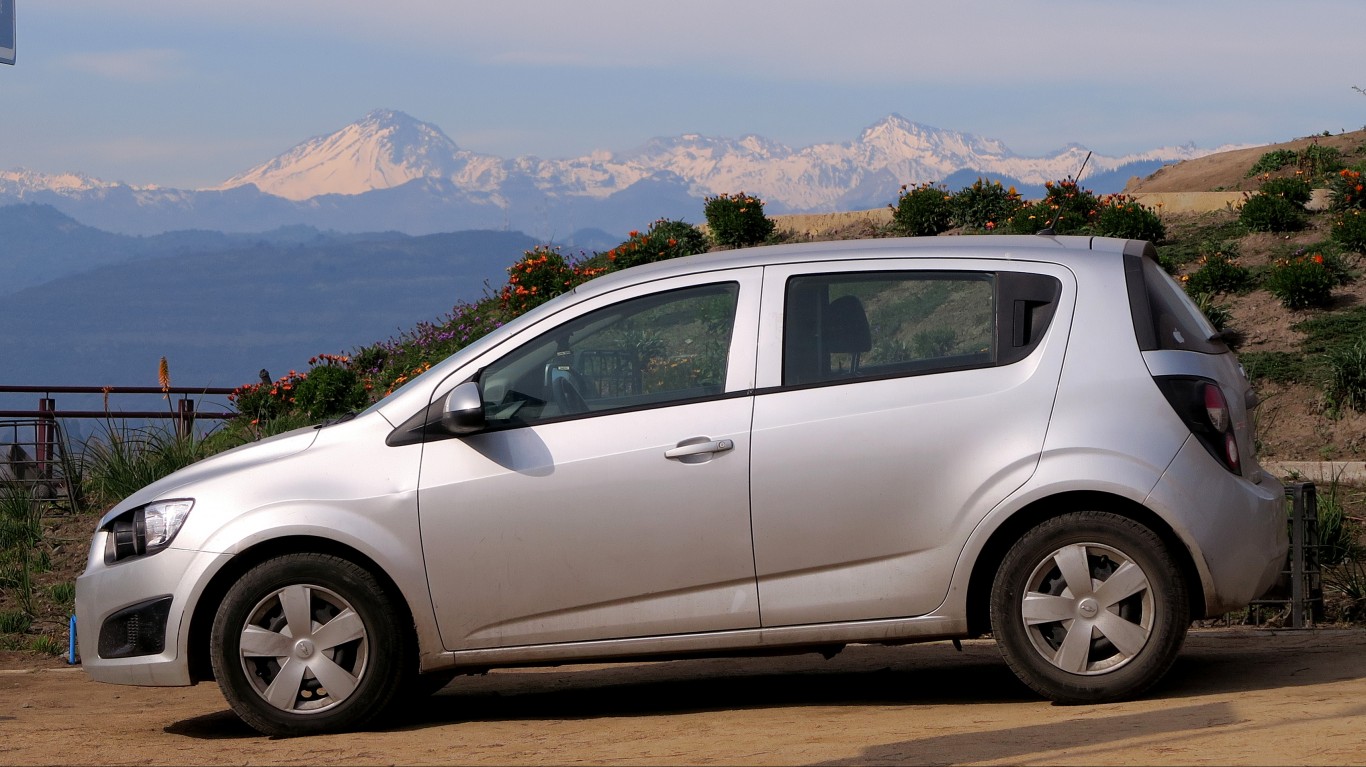
 24/7 Wall St.
24/7 Wall St. 24/7 Wall St.
24/7 Wall St. 24/7 Wall St.
24/7 Wall St. 24/7 Wall St.
24/7 Wall St.
